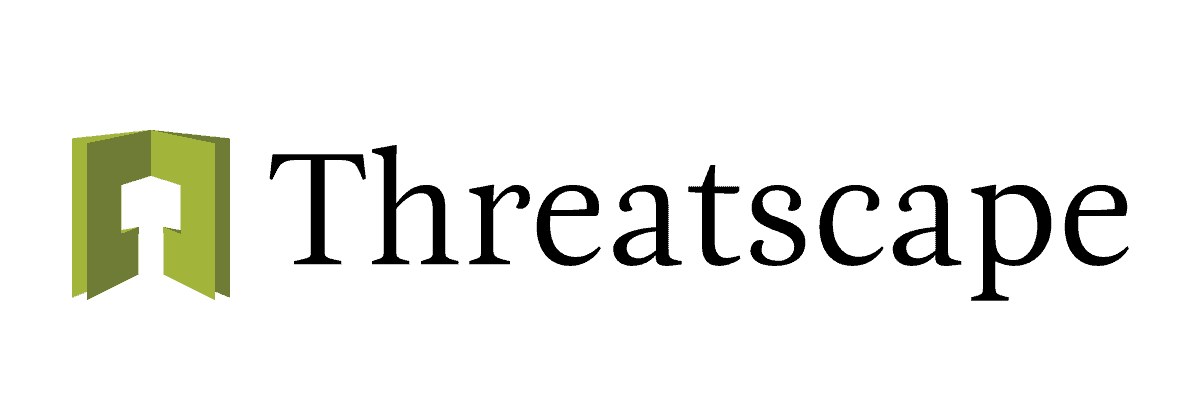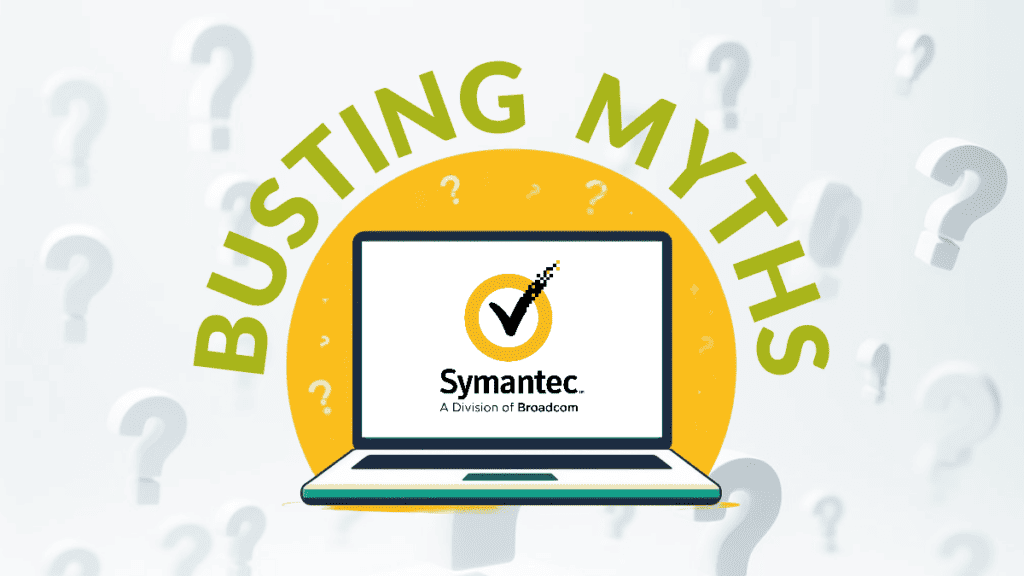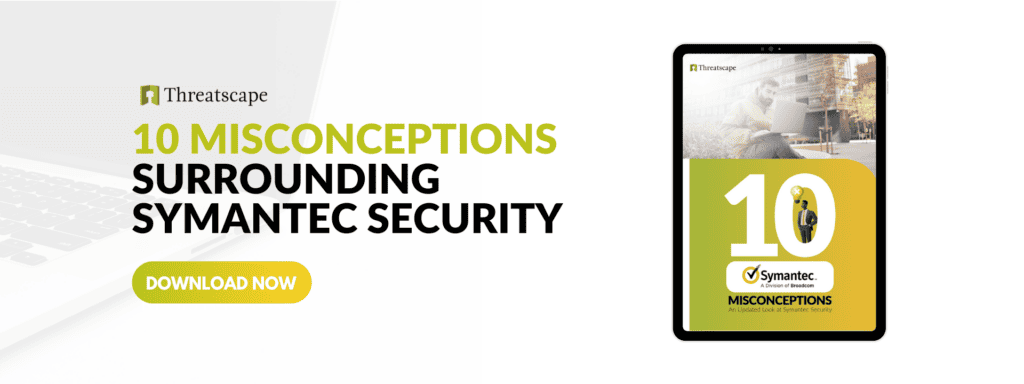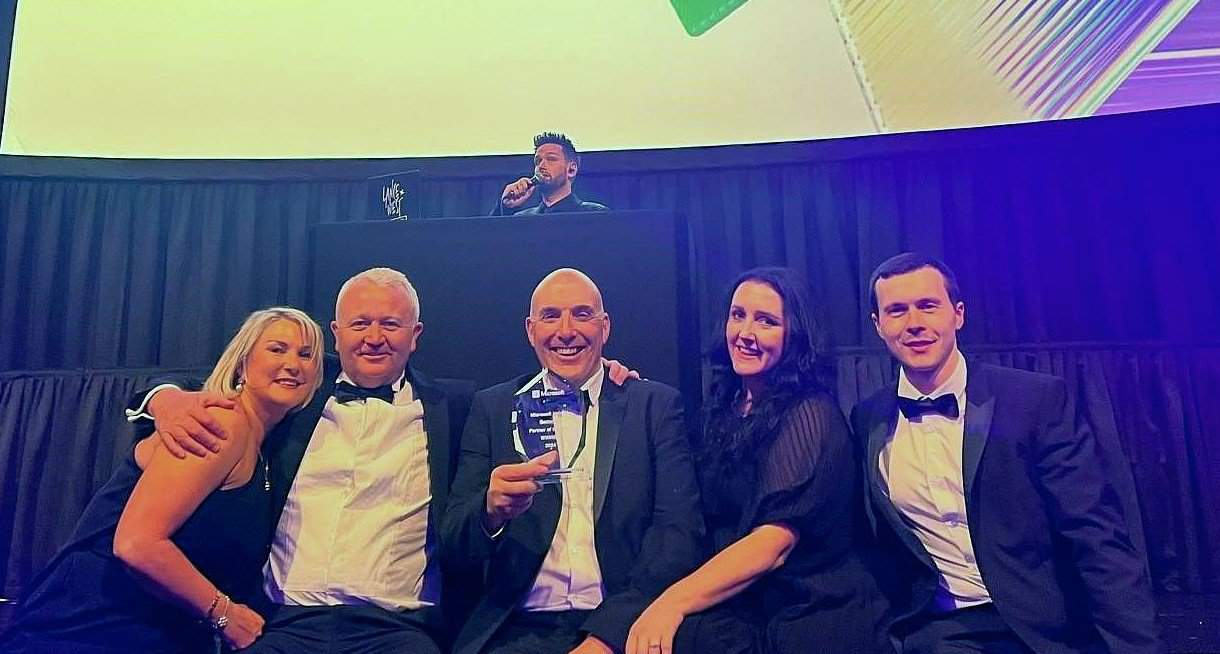The Symantec security suite is a deceptively vast offering, spanning endpoint security, information security and web security, with numerous tools housed within a complementary, interconnected stack that lends itself to simple reporting and comprehensive cyber security protection.
Symantec is a major player in modern corporate cyber security, with a user-first approach to functionality and workflows. However, you may have questions about Symantec’s suitability for your own organisation, either as a vendor, or in terms of its specific tooling and capabilities.

Five key Symantec security questions answered
Threatscape’s management team has been working with Symantec in various capacities since 1999 and is familiar with the questions most commonly raised regarding its place in the cyber security landscape. We’ve covered the questions we’re most frequently asked below in the hope of demystifying Symantec security and its many strengths as a security vendor of choice in 2023.
1. Is Symantec just an antivirus vendor?
Not anymore. While Symantec did begin its life as an AV (antivirus) vendor, its years of subsequent progressive innovation have resulted in a tool set that is focused on holistic cyber security, built on a robust history of security know-how. Symantec currently offers the security tools to prevent attacks and breaches, remediate and respond to threats, improve and maintain information security, and ensure secure web usage.
Whether through strength in endpoint security with the now cloud-based Symantec Endpoint Security (Complete or Enterprise), its Multi-Factor Authentication offering in Symantec VIP, the incredibly powerful Symantec Web Protection Suite, or its Data Loss Prevention offering (with delivery from both on-premises and in the cloud), Symantec’s integrated tools are among the best available at delivering simplified, reliable security.
2. Can I integrate Symantec solutions with my existing security stack?
Absolutely. Symantec understands that organisations will commonly have a range of vendors operating in tandem within their security stack, and that any new tools or solutions must successfully integrate to maintain seamless protection.
Integrations already exist within the Symantec client for popular SIEM technologies such as QRadar and Splunk. However, a full API is also available to be plugged into in order to create a bespoke integration where required. This allows businesses to continue use of security technologies they’re happy with, while calling on Symantec to provide an overarching security platform which fills any gaps and delivers end-to-end protection.

3. Does Symantec security support Android, MacOS and iOS?
Yes, Symantec’s cloud console supports MacOS, iOS and Android systems. With more users than ever before working across a range of devices and operating systems, it’s essential for a security solution to deliver consistent protection throughout these environments as needed.
Symantec’s Web Protection Suite offers in-depth security on devices operating on any of these systems. From protecting applications and their data, to the devices’ environment and contents, as well as the web traffic egressing the device itself, Symantec is set up to deliver seamless support regardless of OS.
4. Can Symantec protect me against ransomware?
Yes, it can. This is a common question for our Symantec team. And understandably so, given the ever-increasing threat of ransomware attacks and their associated financial consequences.
Ransomware protection is built into Symantec’s security suite, and its success as a defender against these threats is evidenced in the customer’s client. Within the central Symantec platform is a report which demonstrates exactly how much ransomware has been successfully blocked.
However, Symantec doesn’t focus on ransomware in isolation. Rather, it works across the entire journey a threat actor must attempt to take through an organisation’s defences in order to lodge a successful ransomware attack, providing comprehensive joined-up security, with a deeper visibility into what’s happening within your stack, how it interconnects, and how each element is offering your business protection.
5. Do Symantec solutions support multi-factor authentication?
They do. Multi-factor authentication is at the core of information access management and cyber security itself and is ever more important now in an increasingly hybrid working landscape with an explosion of BYOD requirements.
Symantec’s cloud and on-premises consoles are both able to fully support all of the mainstream MFA providers including, of course, Symantec VIP. Because Symantec is able to integrate its security offering with other vendor solutions, if your MFA configuration is already in place, Symantec can work alongside this. Alternatively, Symantec’s own MFA tool is simple to deploy, and to use.
Our team at Threatscape eat, sleep, and breathe Symantec. Our expertise is reflected in our status as Premier Partner, and our title of EMEA Symantec Partner of the Year for 2021/22, and our Accelerator Partner of the Year and Fastest Growth Partner of Year wins for 2022/23.
With a range of dedicated Symantec services and solutions available, whatever your requirements, we are primed to assist. Get in touch today to discuss how Threatscape and Symantec can meet your organisation’s cyber security needs.
For more of our insight on Symantec security, explore our videos delivered by our expert team.








